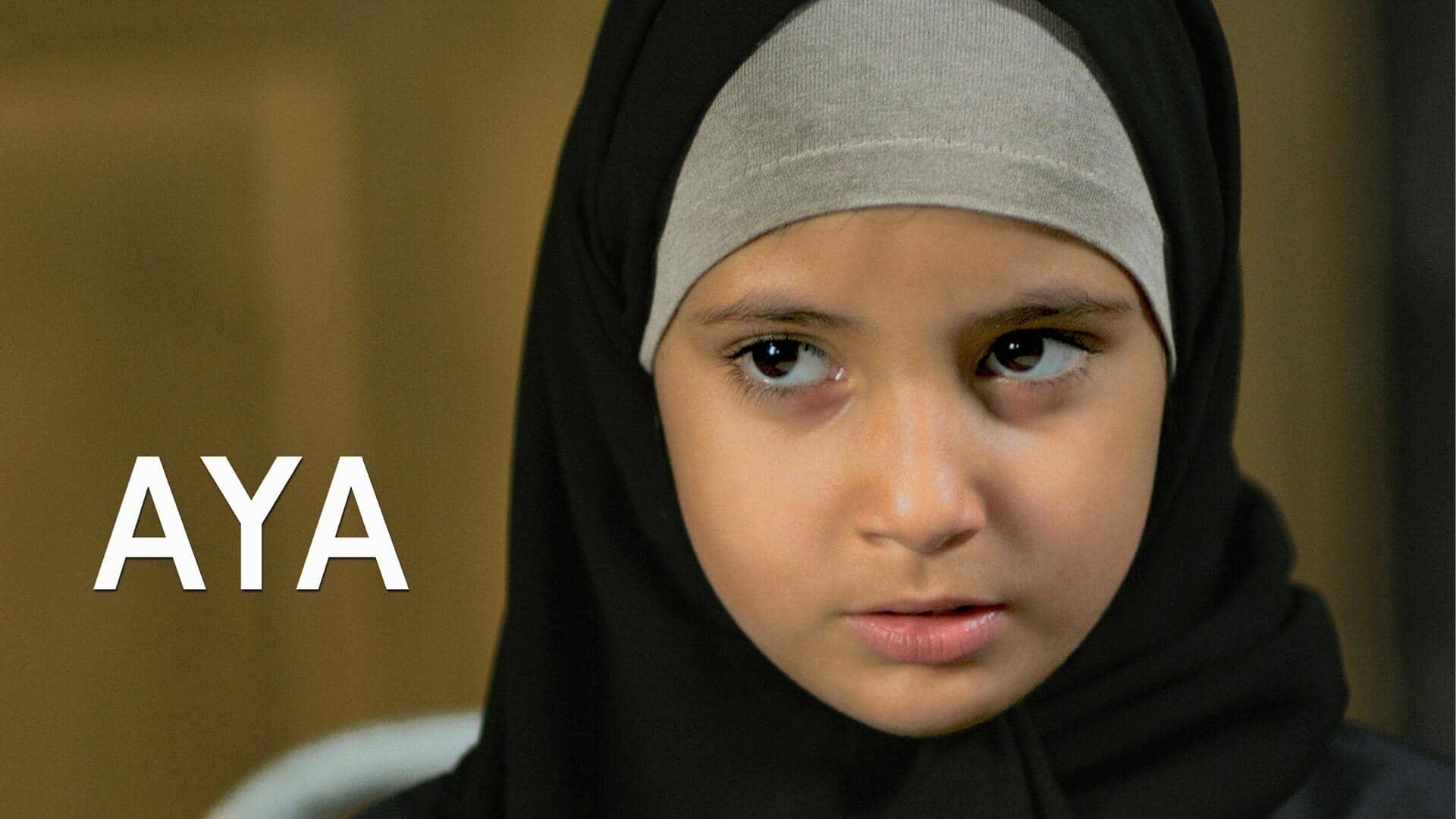
#NewsBytesRecommends: 'Aya' on Netflix explores girls' dreams, desires, uncertain futures
What's the story
Aya, on Netflix, is 24 minutes long but speaks volumes. Set in Tunis—the capital of Tunisia—it explores how a young girl's life crumbles and creaks under orthodox Islamic rules and how not wearing a hijab/burqa (by force, not by choice) could translate into a figurative death sentence. An exploration of nonexistent female authority in countries ruled by religious dogmatism, Aya is tender and thought-provoking.
Plot
Story of 'Aya'
The short film, directed by Moufida Fedhila, is centered around the titular Aya, who lives with her authoritarian father and suppressed mother. Her father sends her to a school run by religious clerics—all girls there cover their heads and engage in rot learning about Islam, but Aya would rather fly freely at a liberal school, uninhibited by the worries of her frequently slipping scarf.
#1
World built differently for two genders
Aya, much like other movies in a similar vein like Farha and Wadjda, underlines how the world is built differently—and views—the two genders differently. Aya is only a child, but her father's fanaticism rules her life already; she must cover her head, learn her lessons at her overtly controlling school, and learn how to be a good Muslim woman. Everything else is secondary.
#2
Aya's mother is another important character of story
The portrayal of Aya's mother is also striking—she seeks to liberate herself and her daughter but has no means to burn the shackles put in place by her husband and patriarchy. Her husband forbids her from showing her hair (even though she's fully covered) and going to her parents because her "cousins will see her." She's a prisoner with no place of her own.
#3
Kites becomes metaphor for freedom and liberation
The film has a tender, sympathetic gaze toward women and offers well-rounded characters despite such a short runtime. Aya looks at kites with a passion kids reserve for their beloved toys, but like everything else, she can only fly them sneakily when her father isn't around. There couldn't have been a better metaphor for freedom than kites: they signify everything Aya craves in life.
#4
Exploration of how fanaticism destroys lives
Aya is told by her father that if she wants to meet Allah, she needs to be a devout Muslim. Religious fundamentalism seeps in, and burqa-clad, she goes to her other school, where she's made a butt of jokes for her "regressiveness." It only goes on to illustrate the crossroads at which kids find themselves as they are torn between education and zealotry.
Verdict
Stream it on Netflix today!
Aya's last few minutes, when the girl is ridiculed by her classmates, are the film's most heartbreaking part. Aya's strength lies in its solid character development and profound dialogues; we can imagine the entire lives of the characters even though we see only flashes of them. Its parting shot reverberates with silent strength—we don't see it, but Aya is finally in safe hands.